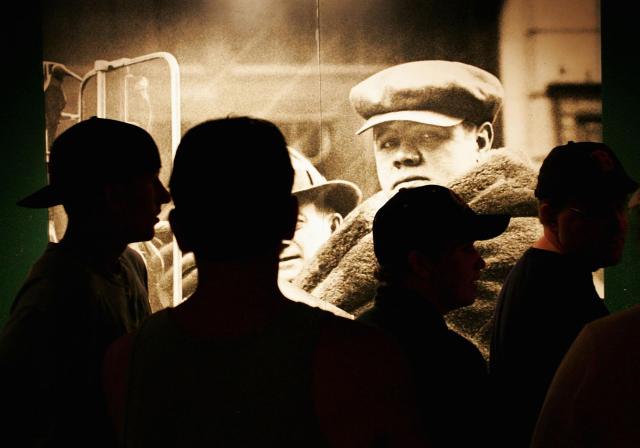Babe Ruth exhibit in the National Baseball Hall of Fame. Credit: Ezra Shaw/Getty Images

Christmas is a time to catch up on all those books you’ve been meaning to get to. I highly recommend adding these two books to your list: Big Fella by Jane Levy and The Once and Future Worker by Oren Cass.
Cass’ groundbreaking work tackles one of the great issues of our time, the decline of decently-paying work that does not require high levels of formal education. Much of our social and political unrest can be traced at least partially to this development. Automation, immigration, and globalisation have combined to make many of our fellow citizens economically expendable. And the result is continued support for various forms of populism, both on the Left (Corbynite) and the Right (Trumpist).
Cass’ central insight is that this development has occurred because we have come to value people only as consumers. But psychologically, people derive self-worth and identity from their roles as producers. They want to contribute something of value that allows them to support themselves as much as possible and share in the bounties of what together we create. Take this away, as the modern economy increasingly does, and all the transfer payments in the world cannot replace that sense of dignity and belonging that comes from paid work.
The book details a host of potential policies that aim to reverse these trends. In the United States, where suspicion of any government intervention in the marketplace remains strong, Cass’ book has unleashed a firestorm of criticism from the high priests of neoliberalism. Readers in other nations where such theological disputes are rarer might have an easier time taking on some of his ideas and making them part of a coherent, reforming conservatism that speaks to our time.
Levy’s book is a biography of one of America’s great sports heroes, the baseball icon Babe Ruth, but has an appeal that reaches beyond just baseball fans. What makes it interesting reading for everyone is its depiction of American life nearly a century ago.
Each chapter addresses one aspect of Ruth’s life and the world in which he lived. One addresses his troubled childhood, through which we glimpse working-class life and neighborhoods at the turn of the 20th Century. This is a world of violence, family, and a reliance on informal social institutions that is virtually unknown today.
As Ruth’s family unravels, it is striking that no government agency is ever involved. There is no social services agency to draw benefits from when times get tough, no child protection service to intervene when Ruth’s parents place him in a Catholic orphanage. The police are friends of families in the neighborhood and practice an informal role in maintaining order that surely would be out of order in today’s rules-based societies. It is a freer, and riskier, world.
Other chapters work similar magic. One on his barnstorming tour of New Jersey in 1927 shows a world where individuals act quickly to bring entertainment to their towns: no permits need to be obtained, there are no government-owned facilities to rent. Another on Ruth’s failed effort to prevent unscrupulous businessmen from commercially trading on his fame shows how uneasily the common law sat with our mass commercial society.
The chapter on his marriages and dalliances explores how relatively anonymous even the most famous people could be in this pre-television age, when even radio was in its infancy. Ruth’s first wife, for example, leads a secret second life as the wife of another man in Boston before her untimely death in a house fire unmasks her. Can anyone imagine a WAG today escaping such public scrutiny to lead a double life?
The result is an entertaining and very informative look into daily life in the not so distant past. People were freer and communities stronger, but life was harder and more precarious.










Join the discussion
Join like minded readers that support our journalism by becoming a paid subscriber
To join the discussion in the comments, become a paid subscriber.
Join like minded readers that support our journalism, read unlimited articles and enjoy other subscriber-only benefits.
Subscribe